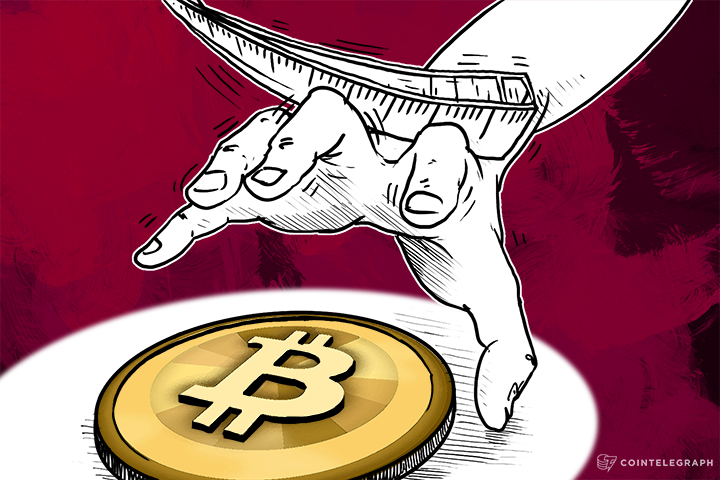A group of State Duma representatives are expected to submit their own version of the bill to penalize cryptocurrency users within the next few days.
It appears that members of the State Duma are not willing to wait until the proposed law to against cryptocurrency usage is drawn up by the Ministry of Finance or the Central Bank. As reported by the Russian news agency Izvestia, a group of representatives from the “Spravedlivaya Rossya” party (translated as “Fair Russia”) are expected to submit their version of the bill in the lower chamber of parliament within the next few days.
State Duma deputy, Andrey Krutov (Spravedlivaya Rossya) explained:
“Cryptocurrencies pose a risk to the financial stability and the financial sovereignty of Russia. There is already enough uncertainty in the market and people taking advantage of this situation by putting their money into Bitcoin and then losing everything is something that we do not need. We created our own bill regarding the penalties for using cryptocurrencies, which will be officially submitted to the State Duma in the next few days.”
Previously, the proposed law regarding the penalties for “using money surrogates” was presented by the Ministry of Finance and the prepared bill was even published on the official website for the disclosure of information. Meanwhile the Bank of Russia warned that using cryptocurrencies will be considered as an attempt to launder money and finance terrorism. Nevertheless, at least one regulator presented an opposing view back in the summer. In particular, the first deputy president of the Central Bank, Georgyi Luntovksyi admitted that “there is a future” in virtual currencies.
“We are proponents of a careful approach towards Bitcoin,” said Luntovskyi in July at the International Bank Congress held in Saint Petersburg. “This instrument might be the future and cannot be ignored.”
But, despite the fact that the bill successfully passed the public discussion stage, it was not formally submitted in the State Duma. The Central Bank also refused to comment on its stance regarding this issue.
Meanwhile, the deputy-spearheaded bill proposes the following penalties for using cryptocurrencies:
- A 5,000 (~US$91) to 20,000 rubles (US$364) fine for individuals (previously, the Ministry of Finance proposed fines of up to 50,000 rubles);
- A 20,000 to 100,000 rubles (US$1,822) fine for government officials and;
- A 500,000 (US$9,113) to 1,000,000 rubles (US$18,225) fine for legal entities.
Similar penalties could also be imposed on distributors of software that facilitates cryptocurrency usage as well as “information that enables the issuance of money surrogates or their operations.”
As Krutov mentions, the need to introduce the given bill arose after several investigations were conducted by the General Prosecutor’s Office. According to a memo sent from the General Prosecutor’s Office to the State Duma to be signed by the first deputy of the General Prosecutor, Aleksandr Buksman, the regulatory bodies do not yet have any effective measures to regulate this market “due to the lack of accountability for maintaining and issuing money surrogates.”

At the beginning of the year after a series of investigations, prosecutors were able to hold one company accountable: a KillFish Bar in Novgorod that accepted Bitcoin as payment. But the egregious act was not the acceptance of cryptocurrencies but because they did not use cash-register equipment when accepting Bitcoin (the fine issued was 30,000 to 40,000 rubles).
Izvestia reported that it was unable to reach the director of the aforementioned KillFish Bar, Andrey Puskin, last night who did not answer the call, but that the bar’s website did publish an announcement stating that it is no longer accepting cryptocurrency for payment as it conflicts with Russian law.
According to Aleksandr Buksman, after conducting the investigations, the General Prosecutor’s Office informed the President about the risks of using cryptocurrencies. “They do not have any intrinsic value and their price is determined exclusively through speculation,” wrote Buksman. As a result, the President ordered the Bank of Russia “in cooperation with other concerned agencies” to resolve this issue on the legislative level.
However, according to legal experts, it will be difficult to penalize the usage of cryptocurrencies even if the given regulations are officially adopted.
“To do this, we need the right technical tools and knowledgeable experts in order to detect cryptocurrency usage and react quickly,” explained Anton Sonichev, a legal expert representing the Delfar law firm. “Moreover, it will be very hard to prove that a particular person issued or used cryptocurrency since their computer could have been used by a third party.”
The hurried legislation is being tabled at a time when the Central Bank is not only having to intervene in the financial markets to support the freefalling ruble, but, interestingly enough, also when transactions on LocalBitcoins in rubles have been seeing an impressive growth surge in recent months.

- Transaction on LocalBitcoins in Russian rubles
Meanwhile, over US$70 billion has been spent in currency purchasing so far this year, which has so far failed to stop the Ruble's decline. Today, the bank raised interest rates by a further 1% to 10.5%, marking an overall increase of 5% for 2014. As a result, the value of the Ruble, which has fallen about 40 percent against the dollar this year, has now reached a new record low of 55.30 rubles to US$1 at the time of writing.

Did you enjoy this article? You may also be interested in reading these ones:
- The Russian Ministry of Finance one step closer to banning Bitcoin
- ‘A Ban is Not the Way to Handle the Risks Cryptocurrencies Pose’ - Dr Victor Dostov, Russian Electronic Money Association
- ‘It is Impossible to Technically Ban Decentralized Cryptocurrencies Due to the Nature of the Internet’ – Evgeny Volovik


